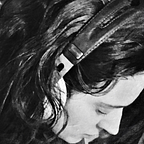Twitter’s homogenization of academic scholarship
Twitter has ruined certain parts of modern academia for me. “But you deleted your account over 1.5 years ago,” I hear you say. That’s exactly why. I deleted my account, but Twitter continues to infiltrate my life because far too many academics are overly online on Twitter. They’ve tied their public identities as scholars and as private individuals so tightly to this online space that it’s now the dominant part and style also of their offline conversations.
Using Twitter can make you feel like ranting. Sending tweets to a group ‘of someones’ you don’t have an explicit conversation with is a great way to vent your frustrations or share your happiness. Slogans are tossed around at will, and they may or may not remain in someone’s feed until they are responded to.
I find it exceedingly frustrating to be on the receiving end of such a communication in real life. At a recent meeting, I was ‘ranted at’ for close to an hour. I quickly felt like a projection surface whose sole purpose was to gain verbal ‘likes’. Any time I tried to steer this unorganized rant into a shared dialogue by encouraging the other person to communicate WITH ME, rather than AT ME, they would abruptly prevent me from talking around one and a half lines in. The phrase “Oh, I saw on Twitter someone saying that…” became a stock response to any question or observation I offered. That person seemed to think they had guessed my answer after only 280 characters and had no need to hear it. Action before comprehension. It’s all about the reaction, not the interaction. Remember that I’m referring to an academic scholar here.
My former mentor in Vienna predicted some of these trends a decade ago. I really would want to have that conversation with him. Sadly, he has passed away. He often warned that “everything that is not online does not exist these days.” That’s not the whole situation anymore, in my opinion. When my mentor warned of the onlinification of academia, he referred to the growing invisibility of print-only and archival materials (you know, that scholarly stuff that too many scholars now find too time-consuming to undertake… even in the humanities). Today, this onlinification comprises anything that isn’t found on the internet, including people, concepts, and methods. As long as it can’t be summed up in a tweet of 280 characters or less, it is not part of the conversation. So it simply does not exist.
The intellectual realm of academia started to contract as more and more scholars moved their work online. That is how it feels. Repeated references to the same (usually overly online) authors, themes, questions, literary devices, catchphrases, and rants seem to develop only in random swarm movement. In this nebulous realm “of everyone with everyone,” there is no such thing as an outsider. Or idiosyncrasy.
But change begins on the periphery and works its way in. The academic world cannot function without the unique perspectives and perspectives of those who are not part of fashionable knowledge presentation. But outsiders are being deprived of oxygen bit by bit. The marginality of thought is being eroded. And too much of the conversation has shifted to verbal signaling.
“Twittersphere… *insert some kind of appeal to some nebulous socio-moral view*… do your thing!”
Who are you actually talking to?
To get some mental oxygen and a chance to catch my breath, I’ve started intentionally looking for intellectuals who don’t use social media as their expression of scholarship. Can it be that I’m retreating from the future, as others (…always somewhat overly online…) have suggested? On the contrary, it feels more like I am moving towards avoidance of mental starvation. While Twitter has grown deeply embedded in today’s academic climate, influencing both content and individuals, it cannot generate original thought on its own.
When a space becomes homogeneous, room for exploration creases.
